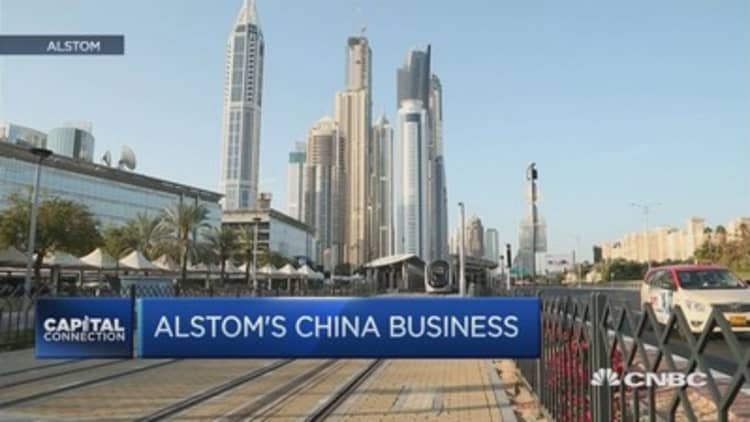BOAO, China — China's ambitious plan to revive its ancient Silk Road through its much-touted One Belt, One Road initiative goes beyond vision and political rhetoric; it is already becoming a reality, a resources executive said Thursday.
"Reality in the business world means there is money spent and money invested," said Eurasian Resources Group CEO Benedikt Sobotka at a media interview at the Boao Forum in the Chinese province of Hainan.
The privately-held Kazakh-founded company headquartered in Luxembourg is the successor to Kazakhstan's largest miner ENRC that was mired by allegations of corruption in 2014.
Since then, Eurasian Resources Group has embarked on a turnaround and has already inked several agreements with Chinese partners in the last two years as part of the new Silk Road initiative worth billions of dollars that looks poised to position the company as a strategic supplier of niche commodities to the world's second largest economy. These include projects in Kazakhstan, Brazil and Africa.
It is developing cobalt production in Africa with Chinese partners and will, by 2018, be the largest supplier of the blue metal to the East Asian giant, said Sobotka. The material will be crucial in the batteries of electric cars that the Chinese government is promoting to build leadership in clean energy driving.
Chrome used in steel-making is another of the niche commodities that China needs to import for all of its needs.
One Belt, One Road makes a difference to global development, said Sobotka.
"Without Chinese financing, we wouldn't be building the size of the plant we are building and China wouldn't be receiving these strategic raw materials," he said of the African cobalt project.

While China seeks to revive an ancient route as a new trade corridor, countries spanning across Central Asia to the Middle East and Europe are set to welcome new opportunities for investment.
In the commodities space, the global supply chain role of the world's second largest economy will continue to grow as it secures the commodity supplies it needs to feed its massive appetite as the world's major consumer for many raw materials that it doesn't produce itself.
Already, Chinese investments have benefited the landlocked nation of Kazakhstan, said Sobotka.
"When the Soviet Union was dissolved in the early 90s, everyone (said) that Kazakhstan would struggle because it does not have access to the ocean, but it turned out that we didn't need to have an ocean because China was going to be the ocean of Kazakhstan," he said.
Correction: This article has been updated to reflect Eurasian Resources Group CEO Benedikt Sobotka's name.

